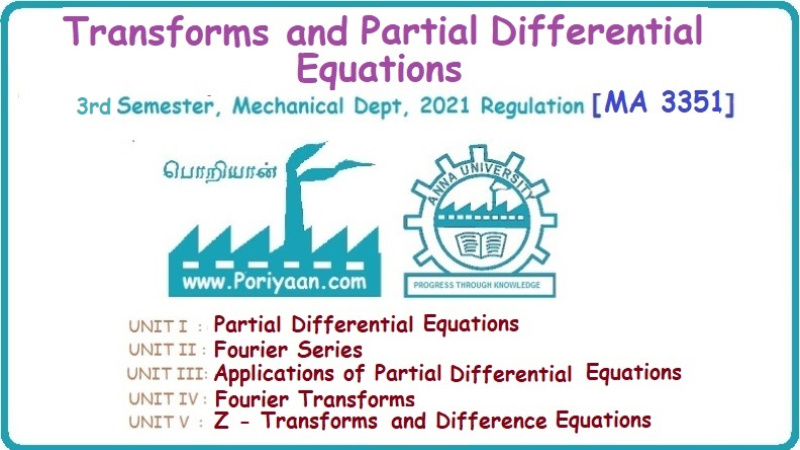Transforms And Partial Differential Equations: UNIT I: Partial Differential Equations
Solved Example Problems & Exercise based on Type 3(b) f(x, p, q) = 0
Transforms And Partial Differential Equations: UNIT I: Partial Differential Equations: Examples
Problems based on Type 3(b) f(x, p, q) = 0
Example
1.3b(25): Solve p = 2qx.to
Solution: Given: p = 2qx, this
equation is of the form f (x, p, q) = 0.

equation (1) is the complete
integral of the given equation.
Since, the number of a.c. number of
I.V
Differentiating partially w.r.to b,
we get 1 = 0.
Hence, there is no singular
integral.
General integral can be found out
in the usual way.
[We can solve this easily by using
Lagrange's idea]
Example
1.3b(26): Solve q = px + p2.
Solution:
Given : q = px + p2 …………(1)
This equation is of the form
f(x,p,q) = 0
Assume q = a (constant)
Then p2 + px - a = 0
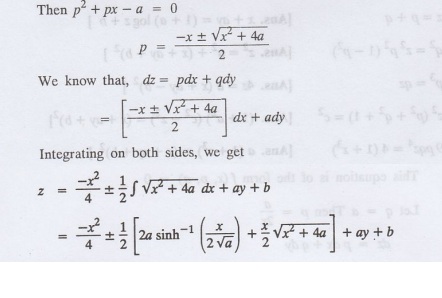
is the complete solution.
Since, the number of a.c. = umber
of I.V
Singular integral does not exist
General integral can be found out
in the usual way.
Example
1.3b(27) : Solve √p + √q = √x.
Solution:
Given: √p + √q = √x
This equation is of the form
f(x,p,q) = 0
Assume q (1) ⇒ √p + √a √x
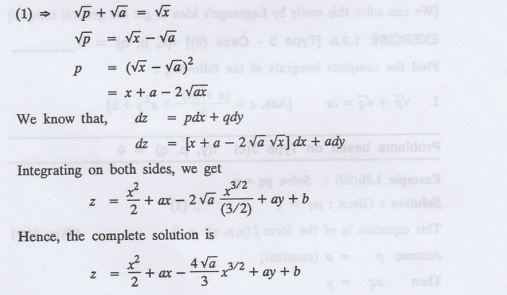
Since, the number of a.c. = number
of I.V
Example
1.3b(28): Find the complete integral of q = 2px
Solution: Given : q = 2px
This equation is of the form f(x,
p, q)
Let q = a Then P
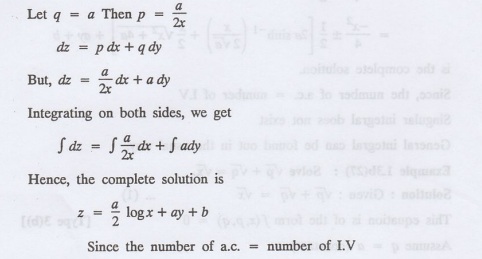
[We can solve this easily by
Lagrange's idea to get the general integral]
EXERCISE
1.3.b [Type 3 - Case (ii)] f(x, p, q) = 0
Find
the complete integrals of the following:

Problems based on Type 3(c) f(x, p, q) = 0
Example 1.3b(29): Solve pq = y.
Solution: Given: pq = y…………..(1)
This equation is of the form f
(v,p,q)
Assume p = a (constant)
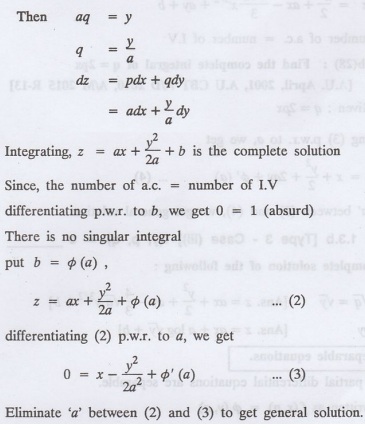
Example
1.3b (30) : Solve q=py + p2
Solution:
Given : q = py + p2
This equation of the form f(y,p,q) =
0
Assume p = a (constant)
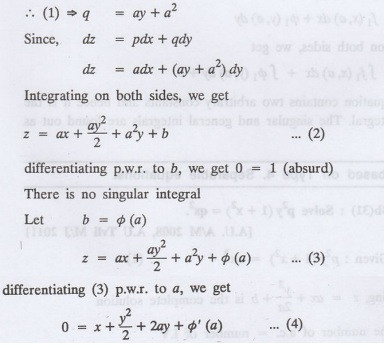
Eliminate 'a' between (3) and (4), we get general solution.
Transforms And Partial Differential Equations: UNIT I: Partial Differential Equations : Tag: : - Solved Example Problems & Exercise based on Type 3(b) f(x, p, q) = 0
Related Topics
Related Subjects
Transforms and Partial Differential Equations
MA3351 3rd semester civil, Mechanical Dept | 2021 Regulation | 3rd Semester Mechanical Dept 2021 Regulation
